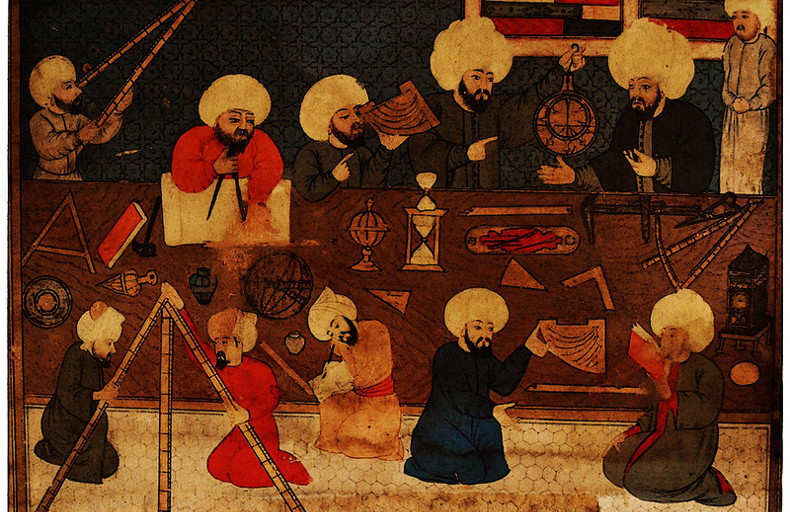Big changes ahead. Stay tuned!
Big changes ahead. Stay tuned!
Nothing here
Start typing to search
Searching..
Nothing matches
There are no matching results.
Sorry!
There has been an error.
Big changes ahead. Stay tuned!
Big changes ahead. Stay tuned!
Nothing here
Start typing to search
Searching..
Nothing matches
There are no matching results.
Sorry!
There has been an error.

Defining Waqf:
Waqf in the Arabic language: Refers to ‘withholding.’
Waqf in Islamic terminology: The act of endowing an asset and making its benefits freely available, i.e., donating for public benefit and seeking reward from Allah(SWT).
Waqf in a modern context: Assets are designated through donation, bequest, or purchase to be held in a perpetual trust for public or private charitable purposes that benefit society.
The definition of Waqf varies among the different schools of thought in Islamic jurisprudence, but these definitions can be summarised as follows:
Hanafi definition: The endowment of properties, making them owned by Allah, and directing their benefits for charity and public use.
Maliki definition: Making the benefit of an owned asset available, whether for a fee or by restricting it to the person entitled, for a specified period determined by the Waqif (endower).
Shafi'i definition: The endowment of wealth that can be beneficially used, dedicating it to Allah(SWT).
Hanbali definition: Keeping the principal (capital) and donating the fruits (returns). In other words, the capital remains intact while the generated returns are utilised.
The four schools of thought agree that Waqf involves keeping the principal asset intact and donating its returns for the sake of Allah(SWT).
Evidence of Waqf from the Qur’an:
"And whatever you spend in good, it will be repaid to you in full, and you shall not be wronged"(Al Baqarah: 272)
"Never will you attain the good [reward] until you spend [in the way of Allah] from that which you love"(Ali Imran: 92)
Upon hearing this verse, Abu Talha (may Allah be pleased with him) said:"O Messenger of Allah, Allah says, Never will you attain the good [reward] until you spend [in the way of Allah] from that which you love.' And the most beloved of my property to me is Bayruha, and I want to give it a charity for the sake of Allah; I hope for its reward and its preservation with Allah. So, place it wherever Allah shows you." The Prophet said: "Well done, that is profitable wealth. I have heard what you said, and I think you should distribute it among your relatives."
Evidence of Waqf from the Sunnah:
Narrated by Abu Hurairah (may Allah be pleased with him), the Messenger of Allah (peace be upon him) said, "When a person dies, their deeds come to an end except for three things: Sadaqa jariya (ongoing charity); a knowledge which is beneficial; or a virtuous descendant who prays for them [the deceased]."
Scholars consider Waqf to be a form of ongoing charity, or sadaqa jariyah. The Prophet (peace be upon him) described many forms of charity that continue to benefit a person after their death in this Hadith:
Abu Huraira reported Allah’s Messenger as saying, “Among the actions and good deeds for which a believer will continue to receive reward after their death are knowledge which they taught and spread, a good offspring whom they left behind, or a copy of the Qur'an which they left as a legacy, or a mosque which they built, or a house which they built for the traveller, or a stream which they caused to flow, or a sadaqa which they gave from his property when they were alive and well, for which they will continue to receive reward after his death.”
The Prophet Muhammad (peace be upon him) said to his companion Umar ibn al-Khattab when he acquired a piece of land in Khaybar, “If you wish you can keep its origin as an endowment (Waqf), and give its yield in charity."
The yield from this Waqf benefited society in multiple ways including helping the poor, benefiting travellers and supporting the emancipation of slaves.
The companion Uthman bin Affan (may Allah be pleased with him) reported that when the Prophet (peace be upon him) arrived in Madinah it had no water that was considered suitable for drinking except the well of Rumah.
“He said, ‘Who will buy the well of Rumah and dip his bucket in it alongside the buckets of the Muslims, in return for a better one in Paradise?’ and I bought it with my capital” (Hadith, Bukhari).
Amr bin al-Harith narrated, ‘When Allah’s Messenger (peace be upon him) died, he did not leave a dinar or a dirham, a slave or a slave-woman, or anything but his white she-mule, his weapons and a piece of land which he appointed as sadaqa,’ (Hadith, Bukhari).
Scholars mention that the Prophet (peace be upon him) endowed various assets like lands and farms bestowed upon him by Allah.
After that, the companions continued to make Waqf to such an extent that Jabir (may Allah be pleased with him) said, "There was no-one among the companions of the Prophet (peace be upon him) who had the means to make a Waqf but did so." There was a consensus among the companions that those capable of making Waqf should do so.